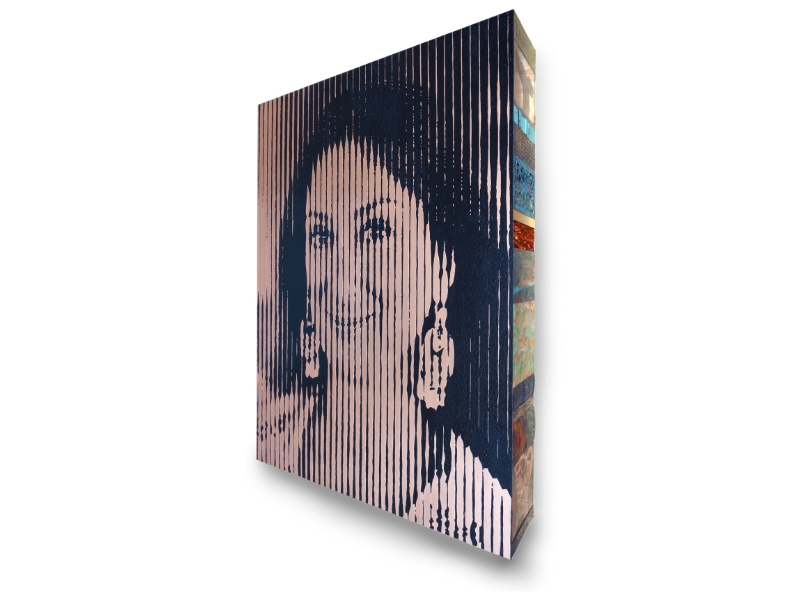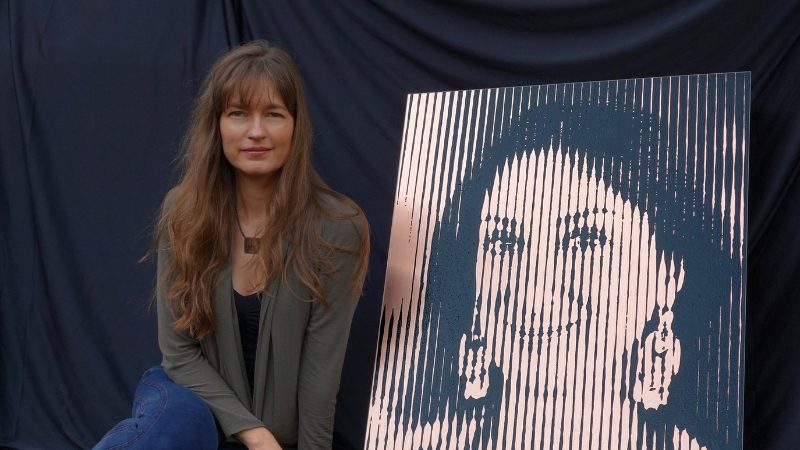Danish artist Marie Louise Kold was in Sweden on October 16, 2017 when she heard news of a car bomb in Bidnija.
Shocked and scared at the thought that it could have been journalist Daphne Caruana Galizia, Kold started monitoring the news websites to see if there were any updates. “Then someone on Facebook posted one word – OMG and I thought that it could only be one thing,” she said.
Just like every single person in Malta, Kold remembers exactly where she was when she heard that journalist Daphne Caruana Galizia was murdered by a car bomb. Four days later, still under shock, she flew back to Malta.
“I felt outraged and helpless and started thinking of what I could do,” Kold said.
Less than one month later, on November 14, 2017, a press room in the European Parliament in Strasbourg was dedicated to Caruana Galizia and inaugurated by EP President Antonio Tajani.
That same evening, Kold turned to husband and renown Maltese artist Gorg Mallia and told him there should be a portrait of Caruana Galizia in the press room. “I believe that everyone should do what they are good at doing – I wanted it to be a good portrait and I know I am a good artist”.
She ran the idea past Peter Agius, former head of the Maltese office of the European Parliament and now speechwriter for Tajani, and within 15 minutes, she was asked “when can it be ready?”. The idea was then presented to the Caruana Galizia family who also agreed.
Kold has lived in Malta for the past seven years and is an international metal artist who manages to transform stiff, tough heavy pieces of metal into beautiful, delicate works of art with multi-faceted surfaces that change colour according to the light, angle and time.
Having met Caruana Galizia one time, she visited their family home in Bidnija and met with the family to learn more about her. “There was art, creativity and beauty everywhere. She would make impractical decisions – such as buying china dinner sets for the love and beauty of them”.
“They trusted me and never interfered one bit with the portrait. I was blown away at their integrity – I don’t think I would have been able to have their emotional response after having gone through what they did. After going through hell, they stuck to their principles and integrity – I am in awe,” she said.
The portrait, which was unveiled this afternoon at the press room in Strasbourg, is made from a single sheet of copper set on a heavy wooden frame. The right side of the frame is wider and filled with “marginal notes” from Daphne’s life.

The portrait was etched out in the copper sheet using acid and then painted in using printers ink – the same ink taken from the printing press she used, making it “more relevant”
“I didn’t want anything distracting attention from the portrait – the notes on the side give an intimate experience of who Daphne was and her life,” Kold said.
Each detail is an intimate link to Daphne and her private life, hobbies and interests. The marginal notes include imprints of leaves taken from Daphne’s garden, the spines of three books stacked on each other, an elephant, and Article Nine of the European Convention of Human Rights – all elements that are closely linked to her life.
“There was a collage of leaves hanging in her kitchen, stacks of books everywhere and elephants everywhere – even in her garden. Over her front door, there was a little row of elephants hanging against a beautiful blue background and I said to myself that it must have been one of the last things she saw before she left the house the last time,” Kold said.
She estimates that it took a total of 470 hours of work – including the paperwork – to finish the portrait. “It feels like it was the most important piece of work I have ever done – it took a lot of work and there were no shortcuts”.
Through the portrait, Kold feels that she is doing her part to keep “shining a spotlight” on Caruana Galizia and the work she did and “persist in saying that her work mattered”. “I would have much rather done this portrait when she was alive – they killed her but not her legacy”.
She pointed out that Caruana Galizia’s death went beyond family and friends. “The death of a journalist affects all of us – all of society. Her being killed means we are all worse off”.
It was unthinkable that a journalist was murdered in a European country. “I am not going to be part of those who are trying to forget her or overturn her legacy”.













